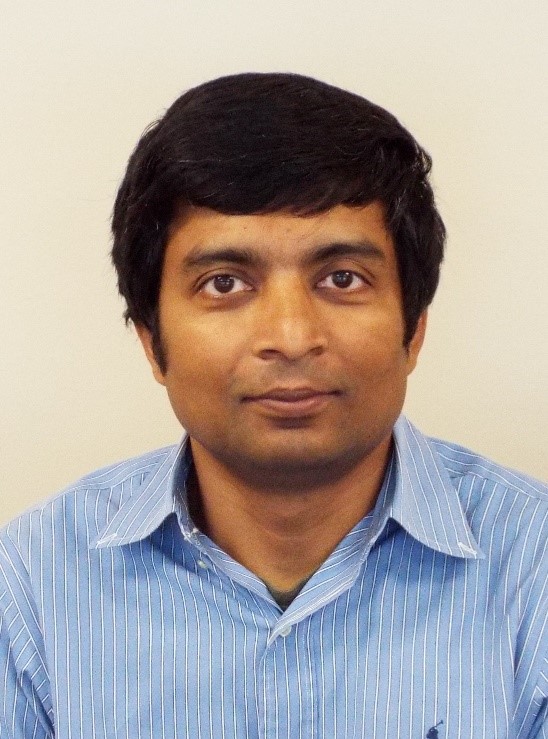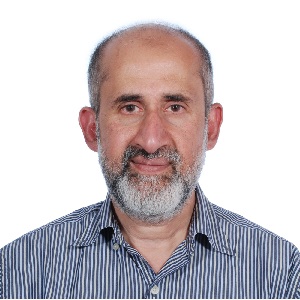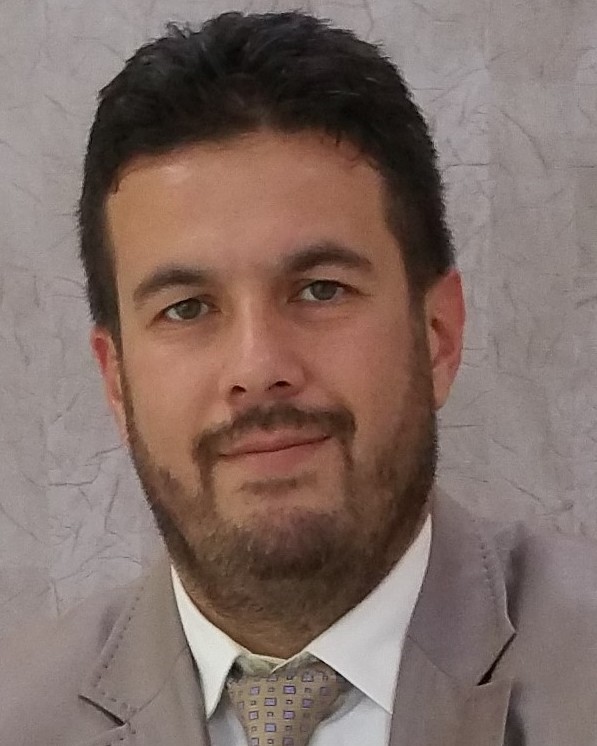


Biography: Maria Pia Fanti (IEEE Fellow and Fellow of the Asia-Pacific AIA) received the Laurea degree in electronic engineering from the University of Pisa, Pisa, Italy, in 1983. She was a visiting researcher at the Rensselaer Polytechnic Institute of Troy, New York, in 1999. Since 1983, she has been with the Department of Electrical and Information Engineering of the Polytechnic of Bari, Italy, where she is currently a Full Professor of system and control engineering and Chair of the Laboratory of Automation and Control. Her research interests include modeling and control of complex systems, intelligent transportation systems, smart logistics; Petri nets; consensus protocols; fault detection. Prof. Fanti has published more than +310 papers and two textbooks on her research topics. She was senior editor of the IEEE Trans. on Automation Science and Engineering and member at large of the Board of Governors of the IEEE Systems, Man, and Cybernetics Society. Currently, she is Associate Editor of the IEEE Trans. on Systems, Man, and Cybernetics: Systems, member of the AdCom of the IEEE Robotics and Automaton Society, and chair of the Technical Committee on Automation in Logistics of the IEEE Robotics and Automation Society. Prof. Fanti was General Chair of the 2011 IEEE Conference on Automation Science and Engineering, the 2017 IEEE International Conference on Service Operations and Logistics, and Informatics and the 2019 Systems, Man, and Cybernetics Conference.
Speech Title: Consensus Protocols for Autonomous Vehicles Control
Abstract: Autonomous Vehicles are equipped with an increasing number of sensors, telecommunication systems and computation agents. In distributed control problem of multi-agent networks each agent is a dynamical system and the problem of reaching an agreement on all or some components of the agents’ status is known as consensus problem.
The talk presents two strategies of consensus protocols to be applied in leaderless network of agents.
The first consensus protocol is applied by vehicles that that have to reach a common velocity while forming a uniformly spaced string. The consensus protocol parameters are optimized for networks characterized by a communication topology described by a class of directed graph having a directed spanning tree, in order to maximize the convergence rate and avoid oscillations.
The second consensus protocol solves an intersection management problem by using only V2V communication, i.e., without employing an external intersection management agent. The AVs apply an iterative algorithm, which avoids collisions crossing the intersection and minimizes the delay or the anticipation with respect to a forecast exit time from the intersection.
The talk will enlighten that the presented control methods will be applied in Horizon Europe projects for managing connected, cooperative ad automated vehicles.

Biography: Dr. Latifur Khan is currently a full Professor (tenured) in the Computer Science department at the University of Texas at Dallas, USA where he has been teaching and conducting research since September 2000. He received his Ph.D. degree in Computer Science from the University of Southern California (USC) in August of 2000. In addition, he received his bachelor degree in Computer Science and Engineering (CSE) from Bangladesh University of Engineering and Technology (BUET) with first class honors (2nd position).
Dr. Khan is a fellow of IEEE, IET, BCS, and an ACM Distinguished Scientist. He has received prestigious awards including the IEEE Technical Achievement Award for Intelligence and Security Informatics, IEEE Big Data Security Award, and IBM Faculty Award (research) 2016. Dr. Khan has published over 300 papers in premier journals and prestigious conferences. Currently, Dr. Khan’s research focuses on big data management and analytics, data mining and its application to cyber security, and complex data management including geospatial data and multimedia data. His research has been supported by grants from NSF, NIH, the Air Force Office of Scientific Research (AFOSR), DOE, NSA, IBM, and HPE. More details can be found at www.utdallas.edu/~lkhan.
Speech Title: Semi-Supervised Learning, Life Long Learning and Scalable Spatio-Temporal Graph Neural Networks for Social Good
Abstract: In this presentation, I will focus on Semi-supervised learning, lifelong learning and spatio-temporal forecasting.
With regard to semi-supervised learning, various efforts have been proposed for reducing the annotation cost when training Deep neural networks (DNN). Semi-Supervised Learning (SSL) is one of the solutions that has been provably handy in leveraging unlabeled instances to mitigate the efficacy of the DNN model’s performance and has been attracting an increasing amount of attention in recent times. In this work, our main insight is that semi-supervised learning can benefit from the recently proposed unsupervised contrastive learning approach, which aims to achieve the positive concentrated and negative separated representation in the unlabeled feature space. Herein, we introduce MultiCon, a semi-supervised learning paradigm that aims at learning data augmentation invariant based embedding. Experiments on multiple standard datasets including Covid19 Chest X-ray images, and CT Scans demonstrate that MultiCon achieves state-of-the-art performance across existing SSL benchmarks. In addition, we will demonstrate how semi-supervised learning can be used to identify Choroidal Tumors in Fundus Photographs and find vulnerable functions in application libraries.
With regard to lifelong learning, we will monitor conflicts and political violence around the world by analyzing volumes of continuous or stream specialized text on a global scale. To help advance research in political science, we introduce ConfliBERT, a domain-specific pre-trained language model for conflict and political violence. We first gather a large domain-specific text corpus for language modeling from various sources. We then build ConfliBERT using two approaches: pre-training from scratch and continual pre-training to facilitate lifelong learning. For incremental/continual learning, deep learning models should be able to learn new information while retaining previously learned skills or knowledge, but catastrophic forgetting does happen and we will address that in this talk.
Time series forecasting with additional spatial information has attracted a tremendous amount of attention in recent research, due to its importance in various real-world applications in social studies, such as conflict prediction and pandemic forecasting. Conventional machine learning methods either consider temporal dependencies only or treat spatial and temporal relations as two separate autoregressive models, namely, space-time autoregressive models. Such methods suffer when it comes to long-term forecasting or predictions for large-scale areas, due to the high nonlinearity and complexity of spatio-temporal data. In this talk, we describe how to address these challenges using spatio-temporal graph neural networks.

Biography: Kamran Iqbal obtained his MS and Ph.D. degrees in Electrical Engineering, and an MBA degree from the Ohio State University. He has held teaching and/or research appointments at the Ohio State University, Northwestern University, University of California, Riverside, University of California, Irvine, California State University at Fullerton, and University of Arkansas at Little Rock (UALR), where he currently serves as Professor of Systems Engineering. He has served as Assistant Chair of Systems Engineering department and helped launch the Masters of Systems Engineering and PhD in Engineering Science and Systems programs at UALR. He has taught a variety of courses in systems and electrical engineering program and written a book titled ‘Fundamental Engineering Optimization Methods.’ His research interests include linear systems theory, biomedical engineering, biomechatronics, and computational intelligence. He is a member of IEEE, IET (UK), ASEE, IASTED, INCOSE (former member), and Sigma Xi (former president of the Sigma Xi Central Arkansas Chapter). More information on him is available at syen.ualr.edu/kxiqbal/.
Speech Title: Reinforcement learning of LQR control policy by inverted-pendulum type biomechanical models
Abstract: Optimal LQR feedback gains can be learned using reinforcement learning (RL) framework for systems with unknown dynamics using policy iteration methods. However, policy iteration in the case of inherently unstable systems is more challenging. In this study we establish reinforcement learning of optimal feedback gains in the case of a nonlinear inverted-pendulum (IP) type biomechanical models. Using an admissible initial policy, the biomechanical model is simulated in MATLAB and trajectory data are recorded. The state variables are transformed into quadratic basis function and used in approximate dynamic programming (ADP) framework to learn the solution to the algebraic Riccati equation (ARE) underlying the LQR problem. The results obtained in the case of an inherently unstable system indicate relatively fast convergence and demonstrate the potential to apply RL techniques to more complex systems.

Biography: Adnan Fatih Kocamaz was born in the Arapgir district of Malatya in February 1979. After completing his primary, secondary and high school education in Malatya, he graduated from Gazi University Faculty of Technology Electronics Engineering in 2001. After graduation, he worked as the Business Manager of Bursa Hilteks Enterprise. He started his academic career at Trakya University in 2002. After completing his master's degree in Computer Engineering at Trakya University in 2008 and his doctorate in the same department in 2011, he started to work as an Assistant Professor in the Software Engineering Department of Kırklareli University Engineering Faculty and served as the founding department chair. In 2013, he start to work at Malatya İnönü University Computer Engineering. He received the title of associate professor in 2019.
Assoc. Dr. A. Fatih Kocamaz works on indoor mobile robots, path planning algorithms for mobile robots, task sharing for multiple mobile robots, task optimizations, image-based mobile robot control and path planning algorithms. He has conducted dozens of international publications, 3 TUBITAK (Turkish Scientific and Technological Research Council), 2 BAP (Scientific Research Projects) in these fields and received a patent. He holds two more patents outside the field. BAP projects were carried out as an Industrial Organization Çalık Denim R&D Center and University-Industry Cooperation (University-Industry Cooperation) work. In the projects, infrastructure works were carried out to transform the company's in-building logistics processes into autonomous ones. In addition, another project prepared to TÜBİTAK within the scope of the Overseas Research Project was accepted. Within the scope of the project, Prof. for a year at Japan Konan University. Dr. “Block Chain Based Dynamic Management System for Mobile Robots” study was accepted under the consultancy of Tomohiro Umetani. Since October 2022, he continues his post-doctoral studies at Konan University, Department of Intelligence and Informatics. Within the scope of the project, the "Block Chain Based Dynamic Management System for Mobile Robots" study was accepted under the consultancy of Tomohiro Umetani at Japan Konan University. Since October 2022, Kocamaz continues his post-doctoral studies at Konan University, Department of Intelligence and Informatics.
In his academic career, Kocamaz has published 38 articles, 45 papers and a book, conducted 12 projects and obtained three patents. There is currently a patent application for mobile robots. Kocamaz graduated 5 master's and 10 doctorate students. He is currently continuing his studies with two doctoral students.
Kocamaz acted as an academic advisor to six companies. In addition to his academic studies, Kocamaz has been the General Manager of Malatya Technopark (Technology Development Zone) in the last six years and has achieved great success and projects.
Speech Title: Using Blockchain Technologies as a Distributed System on Mobile Robot Communication and Task Allocation Process
Abstract: Centralized control and management of robots in a system of mobile robots have disadvantages like the obligation of deploying and maintaining in a server, possible increase in service costs when new robots join the system, single point of failure, communication data burdening on a single line and execution of redundant repetitive tasks by robots. The necessity of reliable and secure communication in a system of mobile robots is a potential application of decentralized systems. In this speech, I propose a blockchain-powered task distribution architecture with Robot Operating System (ROS) for systems of mobile robots and present an application with real robots placed in a real-world environment, and why we need Bloch-china for this communication.